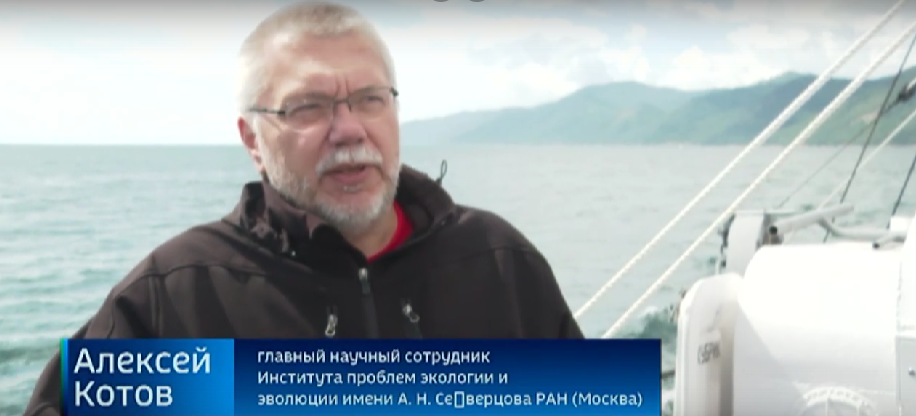Chief Researcher of the Institute of Ecology and Evolution of the Russian Academy of Sciences, Doctor of Biological Sciences Alexey Alekseevich Kotov took part in the “Floating University”. Vesti Irkutsk prepared a report on the expedition.
The ship's crew is preparing the dredge. With its help, the ship will take samples from the bottom of Lake Baikal while it is moving. This is the "Floating University". On board are scientists, students, and university teachers.
The dredge returns with the spoils. Inside are stones, algae and, of course, the inhabitants of Lake Baikal themselves. A scientific laboratory is unfolding right on deck. Biologist Anastasia Poroshina examines amphipods through a microscope.
“There are a lot of such crustaceans on Baikal. About 180 species. This is actually one of the representatives,” says Anastasia Poroshina, junior researcher at the Limnological Institute of the SB RAS.
Participants of the “floating university” also catch crustaceans with a net. They are very widespread. Amphipods are not endemic here, although Baikal is only a few meters away. But for research, says Moscow State University student Ivan Dadykin, they will be useful.
“These are freshwater crustaceans. They are very small. They feed on all kinds of algae. They are so funny,” says Moscow State University student Ivan Dadykin.
But one of the most advanced ways to get crustaceans from the bottom of Baikal is an underwater robot. In this expedition it managed to reach even 100 meters.
The robot has a camera, so the ship can clearly see what is happening at depth. Here are Baikal sponges and algae. The robot's claws scoop up bottom sand and algae - those that interest scientists may end up there.
The algae of this overgrown tree trunk is full of inhabitants? The robot’s manipulator sends it back up with the spoils.
"Floating University" is a nationwide project. Similar ones ply along the Black Sea, Baltic, and Pacific Oceans. On Baikal it has been organized by the Limnological Institute for many years. This time there is only one shift. 20 participants from Irkutsk, Moscow, Novosibirsk and Vladivostok. About half of them are teachers. They select the students.
There are always many people who want to participate in the Floating University project. After all, Baikal is a unique object. And this is an opportunity not only to see it, but also to study it together with experienced researchers.
Tatyana Maryanovskaya from Novosibirsk is on Lake Baikal for the first time. She is in her second year of master's degree. Not a biologist, she deals with mathematical modeling, that is, she processes and analyzes the data that scientists receive on such expeditions.
“I’m studying bioinformatics. There we have a junction of sciences - biology, mathematics, some chemistry, programming. And mathematicians and biologists now collaborate very closely. And biology is nothing without mathematics,” says Novosibirsk State University student Tatyana Maryanovskaya.
Such joint work of experts from different fields is very important in research, confirms one of the country’s leading hydrobiologists, Alexey Kotov. He works in Moscow, at the Institute of Ecology and Evolution, but also contributes to the study of Lake Baikal.
“Such projects lead to cooperation between various institutes, scientists, including young ones, with each other. For example, I cooperate with the Limnological Institute. This happened before this project, of course. But this is extremely important,” says Chief Researcher at the A. N. Severtsov Institute of Ecology and Evolution RAS (Moscow) Alexey Kotov.
Lectures on evolution, Baikal microorganisms, genetics. Students also undergo theory at the floating university. But still, as scientists say, what comes first is practice, the opportunity to get in touch with real field research. Moreover, when such a unique object to study is Baikal. This will help, they hope, to awaken young professionals' interest in science.
“They get acquainted with the issues that are best solved here or better solved using our knowledge. This gives us hope that we will attract capable young specialists. A rare breed,” says the head of the laboratory of hydrology and geophysics of the Limnological Institute SB RAS Dmitry Shcherbakov.
Video report at the link.

